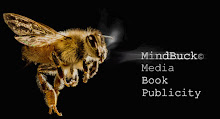“I think of the Pulitzer Prize committee again. Are there acceptance speeches?”
In Skyjack: The Hunt for D.B. Cooper, Geoffrey Gray chronicles the investigation for D. B. Cooper, the lone criminal to have successfully hijacked a commercial airplane. In 1971, a white male flying under the name D. B. Cooper carried a bomb onto a commuter flight from Portland to Seattle. Immediately after liftoff, he took everyone on the plane hostage and demanded $200,000 in cash and a parachute. The plane touched down at SEA-TAC and the passengers were let off. The plane was refueled and took flight again, this time with money and parachute on board. Somewhere over the forests of southern Washington, the hijacker jumped from the plane with a duffel bag full of cash tucked between his knees. No one expected it. The police were caught on their heels. D. B. Cooper got away.
Four decades later, D. B. Cooper still has not been found. By way of a tip from a private investigator, Geoffrey Gray begins to investigate the unsolved mystery of D.B. Cooper. Gray becomes obsessed with the story. The writer-detective persists for two years. He drudges through the case-files, dwelling upon eye-witness testimony and police records. He researches all the prominent characters and contacts those still living. He becomes profoundly disturbed by the case, driving him to the brink of insanity. By this point the case has turned into a ghost hunt. No resolution is possible because there is no person at the center of it all. The open investigation of D.B. Cooper, like most old and unsolved criminal cases, by definition cannot close. But the narrating Gray does not see this. In the final scene, at the behest of a preferred suspect’s widow (or maybe it is just that she agreed to entertain his delusions?), Gray begins to investigate the origins of a hand-written recipe for cherry cheesecake that could have belonged to a stewardess on the flight that D.B. Cooper may have stolen out of pure habit because he might have been a kleptomaniac… The investigation extends ad nauseum and we can only be glad that Gray does not insist that we continue on with him for this narrative hijack of a story. (And that is not necessarily a bad thing - a narrative hijack can be heroic if successful, but most attempts fail.)
Skyjack does not represent the first try at telling the story of D.B. Cooper (though it may be the first novel). As a semi-historical fiction, the form of the novel well-reflects the nature of its subject. Like many of its predecessors, Skyjack posits D.B. Cooper as a folk hero akin to Jesse James, John D. Dillinger, and other popular anti-establishment American folk heroes. D.B. Cooper was not Robin Hood: jaded by a government who ignored him, corporations who manipulated him, and people who misunderstood him, D.B. Cooper figures as a self-interested and supremely independent Northwestern legend (apparently, it’s not just the rain that messes with your head in the NW).
At its best, the story impresses itself upon you and keeps the pages turning. At its worst, Skyjack becomes bogged down in cultural conjecture and garbled logic, offering such absurd suppositions as, for instance, when explaining the historical moment of Cooper’s hijack, Gray “reasons” that after Boeing lays off a large percentage of the Seattle workforce, all social order dissipates, cops are placed on unpaid leave, and “Dope is sold outside drive-in restaurants.” Wait, does Boeing sell drugs? Such instances beg the question: is Skyjack satirical? Is this just Gray’s ironic joke on himself and his own Pulitzer-crazed descent into the madness surrounding D.B. Cooper? I think so, authorial intent is often a laughable thing, and certainly the read was mildly entertaining, but I can’t get away from the fact that this book would have been a lot better on an airplane.
By Staff Writer, Brent Lightfoot
What's new with authors from the Pacific NW and beyond? I'll letcha know what I find out (amidst my own sordid professional digressions) Peace and Love - JG
About Me

- Jessie Glenn
- Jessie Glenn attended Reed College and Portland State University in Portland, Oregon. Her book publicity work has been highlighted in Poets & Writers Magazine, Annie Jenning’s EliteWire, AWP, and numerous “Ask the Expert” articles. She was picked as a judge for the IndieReader Discovery Awards the Women's Fiction Rising Star Awards and in an unrelated twist, she was also a contestant on MasterChef season 3. Jessie teaches a Master's level book publicity class for Portland State University's Masters in Publishing degree. In additional to her own writing clips in NYT Modern Love, WaPo, Toronto Star and elsewhere, Jessie is a comfortable, well practiced public speaker, media coach and takes on select PR repping positions for notable clients.
No comments:
Post a Comment